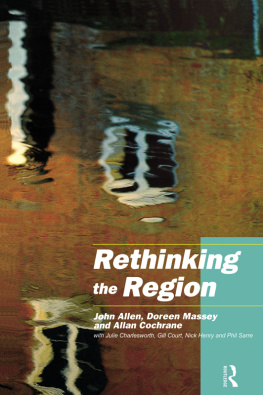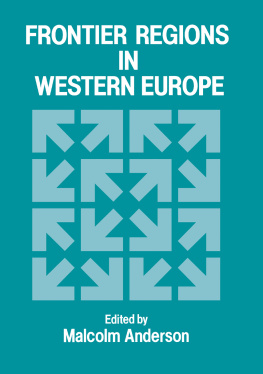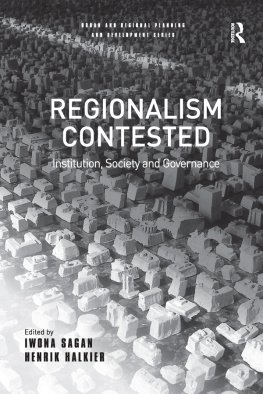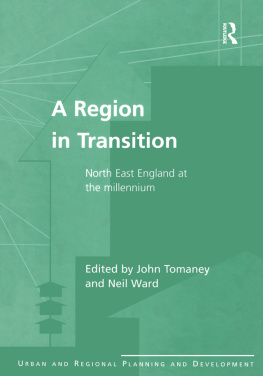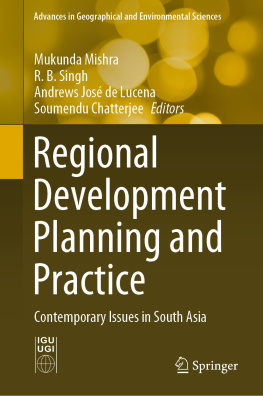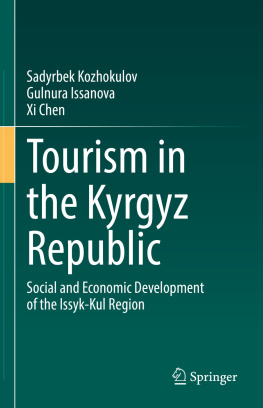RETHINKING THE REGION
One of geographys central objects of study is the region, the place, the specific area. Following on from the old-style textbooks on regional geography which worked through a sequence of regions which seemed to have existed for all time, geographers are now more willing to question the validity of rigid borders and the stability of boundaries more generally. In this book, it is argued that regions are not out there waiting to be documented. Rather, they are constructions of spacetime: the product of a particular combination and articulation of social relationships.
In contrast to the idea that regions are coherent or homogeneous forms, the authors propose that regions should be understood as open, relational constructions, that are discontinuous over space and through time. This argument is conducted through an analysis of the growth region that was the south east of England in the 1980s. As the heartland of the neo-liberal project, the south east was held up at that time as a model of success, to be replicated elsewhere. The political and economic failings of this projected success, and its inherent fragility, form the basis of this study and are drawn upon to highlight how we may rethink the region.
In doing so, the authors engage with a number of broader debates within the social sciencesaround identity, difference and placeas well as putting forward a political critique of the geographical underpinnings of neo-liberalism. Central to each of the analyses is the assumption that spatiality is an integral aspect of the reworking of social relations across regions.
John Allen, Doreen Massey and Allan Cochrane all work in the Faculty of Social Sciences at the Open University.
RETHINKING THE
REGION
John Allen, Doreen Massey and
Allan Cochrane
with Julie Charlesworth, Gill Court, Nick Henry
and Phil Sarre

First published 1998
by Routledge
11 New Fetter Lane, London EC4P 4EE
This edition published in the Taylor & Francis e-Library, 2002.
Simultaneously published in the USA and Canada
by Routledge
29 West 35th Street, New York, NY 10001
1998 John Allen, Doreen Massey, Allan Cochrane, Julie Charlesworth,
Gill Court, Nick Henry and Phil Sarre
All rights reserved. No part of this book may be reprinted or reproduced
or utilised in any form or by any electronic, mechanical, or other means,
now known or hereafter invented, including photocopying and recording,
or in any information storage or retrieval system, without permission in
writing from the publishers.
British Library Cataloguing in Publication Data
A catalogue record for this book is available from the British Library
Library of Congress Cataloging in Publication Data
ISBN 0-415-16821-X (hbk)
ISBN 0-415-16822-8 (pbk)
ISBN 0-203-00750-6 Master e-book ISBN
ISBN 0-203-17296-5 (Glassbook Format)
CONTENTS
MAPS AND MONTAGES
Preface
The spectacular defeat of the Conservatives in the May 1997 general election is testament to one of the central claims of this book: the unsustainable nature of growth based on market values, entrenched inequality and strident individualism. What the election showed was the inherent fragility of the neo-liberal project, as the electorate, even in its heartlands, was no longer prepared to shoulder social division and insecurity as the price to be paid for economic growththe fruits of which were always never quite within reach. The electoral map of the south east changed overnight, with larger than national swings reducing the Conservatives largely to the rump of the home counties, their traditional core before the neoliberal shift. As an agenda of political and cultural change, the legitimacy of neoliberal growth has not only been called into question by the electorate of the south east, it has been dramatically cut away geographically.
Ironically, it is the areas that they still hold in the south east which do now meet their much vaunted image of the nationthe rural idyll and its picturesque English villages. With the reorganization of constituencies, the Conservatives lost many of the middle-sized towns in the south eastBedford, Harlow, Hemel Hempstead, Luton, Milton Keynes, Stevenage, Watford to name but a few. At the same time, they retained the rural and suburban seats in Buckinghamshire, the likes of which perhaps says more about what is quintessentially Tory than many other locations in the region. Although not absent from the town and cities in terms of individual votes, the Conservatives are perhaps now giving real electoral credence to the acronymROSEas the rest of the south east.
More importantly, such a shift opens up the possibility for a new south east, in both representational terms and in terms of a new regional politics. In this book, we argue for the possibility of an alternative political project: one based upon the livelihood and fortunes of those who live in the south east, as much as those living beyond it. The recognition of a more balanced, even form of growth which recognizes regional differences within the wider, national and international context in which they have been formed represents just such a potential startingpoint.
Of course, new political settlements are not put in place by merely questioning the validity of regional or institutional boundaries, nor by willing a less divisive social order based on solidarity, morality and trust. The political and cultural legacy of the south east is one very different from that associated with Labour, even in its new political colours and trappings. The issue is not one of attempting to turn the clock back to the social democratic conditions of thirty-odd years ago, simply to re-create the growth dynamics of the 1960s. Rather, the issue, as stressed in various ways throughout this book, is to re-imagine the region in an open, relational political context. In short, we need to rethink the region, politically and geographically.
Rethinking the Region is the outcome of a collaborative effort which started in October 1989 as a discussion group among geographers at the Open University, together with Nigel Thrift and Andrew Leyshon from the University of Bristol. The practice of working in course teams at the Open University to produce teaching materials provided us with a model way of working which we were keen to extend to the research process. Having produced a six-volume course on Restructuring Britain in the latter part of the 1980s, it was felt that the practice of teamwork, and indeed many of the ideas developed on the nature of social transformation, could usefully inform our research thinking and practices. The initial sparks which kindled our imaginations and brought us together were a political concern with the nature of the growth laid down in the 1980s, especially its deep inequality, and a strong commitment to thinking through the geographical significance of growth in what, to all intents and purposes, had become known as the heartland of neo-liberalismthe south east region. Sitting in Milton Keynes, we were acutely aware that growth could take many different forms. And indeed results from the ESRC-sponsored Localities projects, with which we interacted productively, provided constant stimulation and provocation in this and many other respects.
The nature of neo-liberal growth, with its markedly uneven and divisive effects prompted us to conceptualize the different axes of growth involved and from there to identify their points of geographical concentration, as well as those locations where growth in the region was largely absent. Indeed, such an endeavour prompted us to ask exactly when and where was the south east? The outcome of this collective endeavour was the construction of a broad research framework which was sufficiently robust as to enable researchers within the groups to study in greater detail different sides to neo-liberal growth. Funding was sought, and obtained, from the ESRC for a two-year programme of research comprising four linked projects, each designed to reveal aspects of the cross-cutting nature and varied impact of growth across the south east. The rest, as they say, is geography. Or, rather, the rest, the collaborative output of the programme, is presented in this text, and in a wide range of published articles and papers to both academic and non-academic audiences.
Next page
